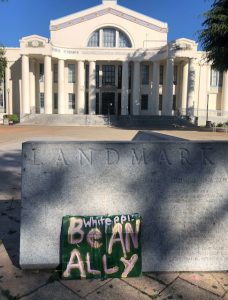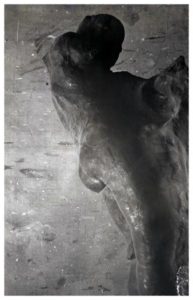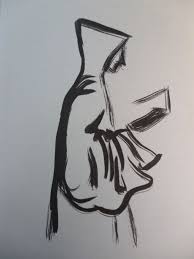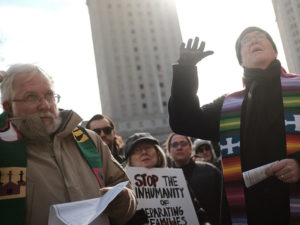Poor
We stand with you.
June 4, 2020[Photo: Courtney Martin, Oakland, CA]
♡
“We stand there with those whose dignity has been denied. We locate ourselves with the poor and the powerless and the voiceless. At the edges, we join the easily despised and the readily left out. We stand with the demonized so that the demonizing will stop. We situate ourselves right next to the disposable so that the day will come when we stop throwing people away. The prophet Habakkuk writes, “The vision still has its time, presses onto fulfillment and it will not disappoint . . . and if it delays, wait for it [2:3].”
-Fr Richard Rohr, Center for Action & Contemplation
Make of us a garland.
August 31, 2019Rilke:
We are not poor. We are just without riches,
we who have no will no world:
marked with the marks of the latest anxiety, disfigured, stripped of leaves.
Around us swirls the dust of the cities,
the garbage clings to us.
We are shunned as if contaminated,
thrown away like broken pots, like bones,
like last year’s calendar.
And yet if our Earth needed to
she could weave us together like roses
and make of us a garland.
For each being is cleaner than washed stones
and endlessly yours, and like an animal
who knows already in its first blind moments
its need for one thing only…
to let ourselves be poor like that…as we truly are.
-The Book of Hours III,16
“…a discovery that respects the hiddenness and in communicability of each one’s personal secret, while paying tribute to his presence in the common celebration.”
-Thomas Merton, Seasons of Celebration
An active challenge for the marginalized, oppressed and poor.
January 24, 2019“An individual committed to social justice, inspired & frustrated & impassioned by everything. Everything is political. To think otherwise is a luxury. If you don’t stand for something, you will fall for everything.”
-Anwar Omeish (From the book A Nation of Nations/A Great American Immigration Story (2015), by Tom Gjelten
“To me, Jesus talked about reaching out to the poor, reaching out to the marginalized, reaching out to the oppressed,” says Tara Agnew Harris, 41, who worships at Myers Park Baptist Church in Charlotte, N.C.
“Sometimes, I feel that traditional Christian beliefs have been hijacked,” she says. “I think many people in the United States, when they hear about ‘Christian beliefs,’ they think it has something to do with a certain fundamentalist mindset.”
“The way that I personally interpret my Christian faith and my own Christian walk,” she says, “is that it’s an active challenge. [It’s about] how I can make a difference in the lives of others.”
“We’re working with Muslims and Jews and Sikhs and every sort of faith group,” Butler says. “We all have the same core values in mind, which is that everybody is created in the image of God, and we need to love our neighbors as we love ourselves.”
It was religious leaders who drove the abolitionist movement in the 19th century and the civil rights movement in the 20th century.
“I think religion helps people understand who they should be,” Butler says.’
“The nation is in need of “moral defibrillators” to work on its weak heart.”
-Rev. Dr. William Barber



